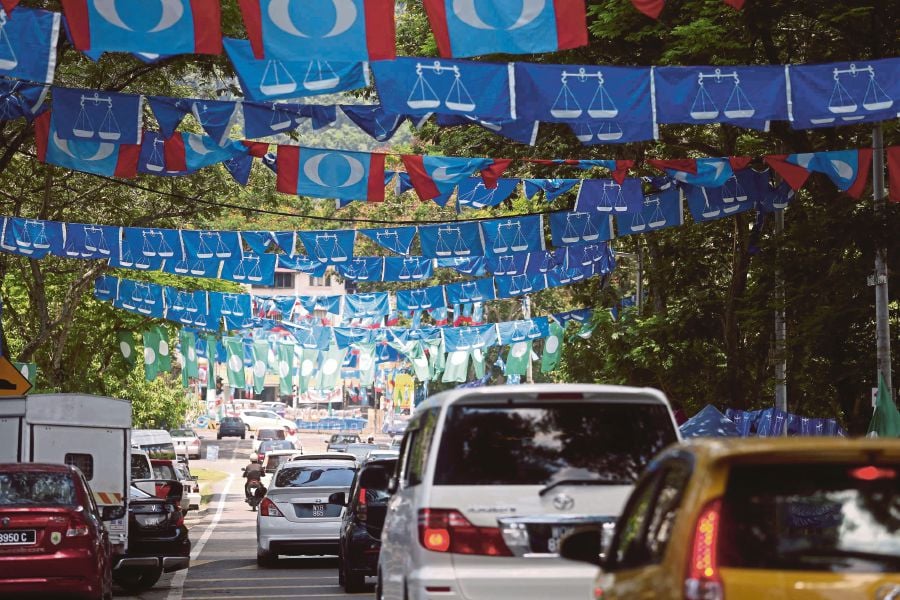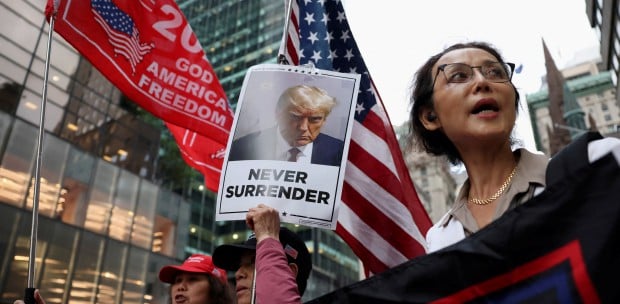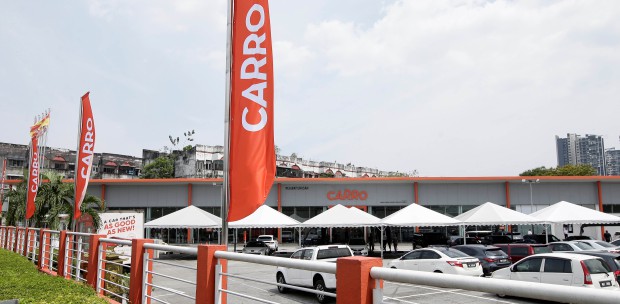TOMORROW, Malaysia’s 14,968,304 registered voters will exercise their democratic rights to choose their next parliament and government in the “Mother of All Elections”.
Not all of them will enter the privacy of that hallowed polling booth given that voter turnout is projected at 85 per cent, which by international standards is very high.
For those who do turn out to vote, the choice could not be starker. The election campaign saw divisions among the political parties, especially within the opposition pact, led by Tun Dr Mahathir Mohamad, and Pas, led by Datuk Seri Hadi Awang.
Voter sentiments according to several polls are mixed; BN’s track record and strong economic growth speak for itself, for the opposition, the so-called Malay tsunami.
BN predicts that it could secure enough seats to give it a comfortable majority. But, in the event of a hung parliament, it is unlikely Pas would support the opposition, having rejected to join the opposition pact. But, perhaps, we are in danger of getting carried away with all this speculation. History tells us that, given the nature of Malaysian politics, it is difficult, if not impossible, to defeat BN.
The choice for Malaysians, especially the majority Malays, is whether it is “business as usual” with BN and its stated direction for the country underpinned by Prime Minister Datuk Seri Najib Razak’s flagship TN50 with its goal of achieving the high income nation (HIN) status, or whether they want a “new dawn” with the opposition, except that in reality, many of the latter’s leaders were once stalwarts of the very party they have just decided to depose.
Tomorrow’s vote for millions of Malaysians is also “the Mother of all Decisions”, because it would potentially affect three generations of their immediate families — grandparents, parents and children — their welfare, opportunities and prospects in life.
Not surprisingly, the opposition, in a last ditch attempt, has focused on the impact of the Goods and Services Tax (GST) and the high cost of living in the last days before polling. They have repeatedly raised the 1MDB affair, but left out what it had done to resolve the matter. 1MDB President and CEO, Arul Kanda Kandasamy had said the opposition has been disingenuous by not giving the public the whole picture, and only capitalised on sensational half-truths for political mileage.
The politicisation of 1MDB, together with the constituency boundary changes, the anti-fake news law and the high cost of living, coincidentally, are also the focus of international media coverage of GE14.
Former minister of finance Tun Daim Zainuddin’s assertion that it is difficult for BN to rationalise the introduction of GST is puzzling. All the advance economies have VAT or GST in place as an additional revenue generator. There is no mystery. Governments do have to judge at what level the tax is set and what exemptions there are especially for staples. In the case of Malaysia this is reasonable compared with the European Union and United Kingdom. Similarly, the cost of living is not a deliberate policy conjured in the corridors of power in Putrajaya. It is subject to the vagaries of commodity prices, volatility in the exchange rate of the ringgit, import and export dynamics, government policies and economic management, and wage differentials.
Almost every independent body, including the International Monetary Fund has commended the BN government’s stewardship of the Malaysian economy. Wages should catch up with the cost of living but this can only be done if the economy can afford it and not through reliance on subsidies and handouts. BN’s commitment here is through increasing the minimum wage, although it has to aspire towards introducing a living wage down the line.
Who Malaysians vote for is entirely a matter for their own conscience, self-interest, values and future prospects. Malaysia’s democracy is robust enough to abide by whatever decision they take. Whatever the outcome, the immediate task after the election for victors and the vanquished alike is to accept the decision and to move forward.
Respect the results of GE14, which is the people’s mandate, and start work to embrace the objective of achieving high income status for the country and leaving no one behind.
[email protected] The writer is an independent London-based economist and writer






